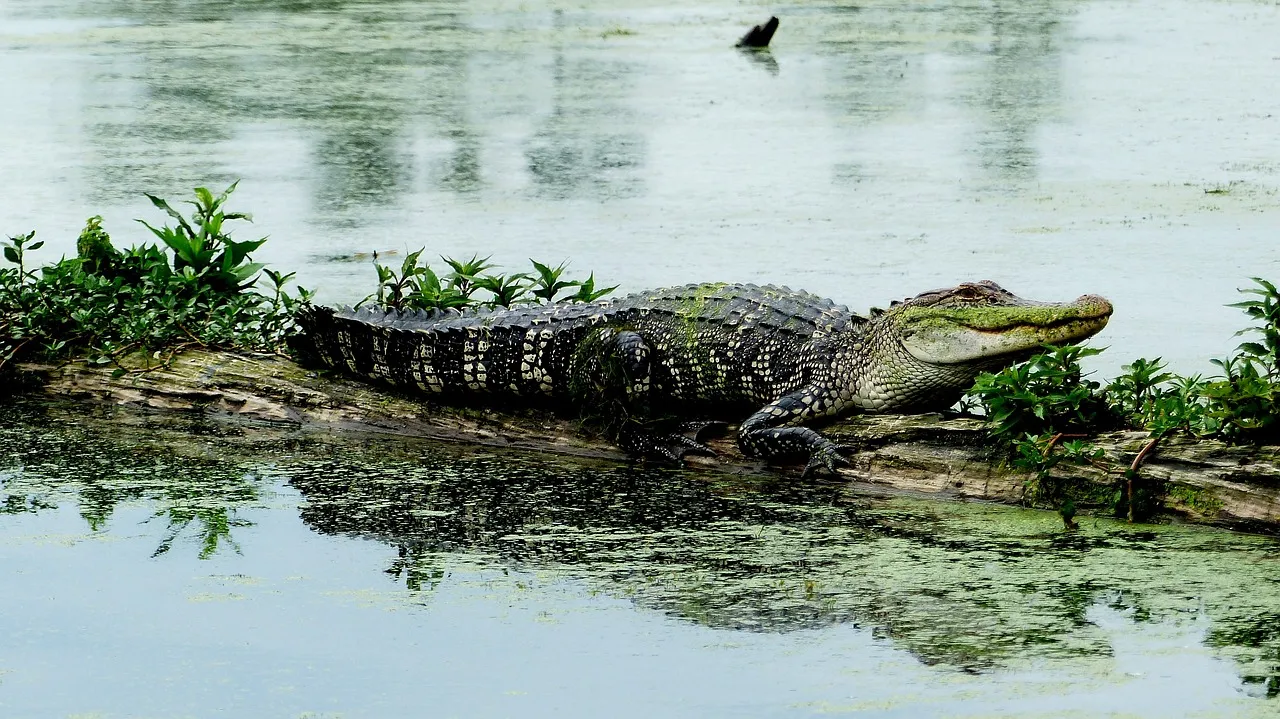Are There Alligators In Miami, Florida?
As a major city in South Florida, Miami may seem like an unlikely place to spot alligators. However, there are actually quite a few of these prehistoric-looking reptiles that call Miami and its surrounding areas home. To learn all about the alligator population in Miami, keep reading.
If you’re short on time, here’s a quick answer: Yes, there are alligators living in and around Miami, primarily in freshwater canals, ponds, and the Everglades.
Alligators are Native to South Florida
Alligators have long been a part of the natural landscape in South Florida, including Miami. These reptiles are well adapted to the region’s wetlands and can be found in various bodies of water, including lakes, ponds, and canals.
It is not uncommon to come across alligators in certain areas of Miami, but they generally do not pose a threat to humans if left undisturbed.
Historically Present in Region
Alligators have a rich history in South Florida and have been present in the region for thousands of years. Native Americans and early settlers in the area coexisted with these reptiles, recognizing their role in the ecosystem.
The Seminole Tribe, for example, has a deep cultural connection with alligators and considers them sacred.
Alligators were once hunted extensively for their hides and meat, leading to a decline in their population. However, conservation efforts and strict regulations have helped protect and preserve these magnificent creatures. Today, alligators are thriving in South Florida, including the Miami area.
Abundant in Everglades to the West
The Everglades, located just west of Miami, is home to a large population of alligators. This vast wetland ecosystem provides an ideal habitat for these reptiles, with its abundant water sources and diverse plant and animal life.
Visitors to the Everglades often have the opportunity to spot alligators in their natural habitat, making it a popular destination for wildlife enthusiasts.
It is important to note that while alligators are native to South Florida, they are generally not found in densely populated urban areas. They tend to prefer more secluded and natural environments. However, as urban development continues to encroach upon their habitat, occasional sightings of alligators in suburban areas are not uncommon.
If you happen to come across an alligator in Miami or any other part of South Florida, it is crucial to remember to keep a safe distance and never approach or feed them. Alligators are wild animals and should be respected for their natural behaviors and instincts.
To learn more about alligators in Miami and South Florida, you can visit the Florida Fish and Wildlife Conservation Commission website for additional information and safety guidelines.
Many Alligators Live in Miami’s Freshwater
Miami, Florida is widely known for its beautiful beaches, vibrant nightlife, and diverse culture. However, what many people may not realize is that Miami is also home to a significant population of alligators.
These prehistoric creatures can be found in various freshwater habitats throughout the city, making encounters with them a somewhat common occurrence.
Spotted in Urban Canals and Waterways
One of the reasons why alligators thrive in Miami is the abundance of urban canals and waterways that crisscross the city. These man-made channels provide the perfect habitat for alligators, offering them shelter, food, and a place to reproduce.
It is not uncommon for residents and visitors alike to spot these reptiles basking in the sun or gliding silently through the water in these urban environments.
According to the Florida Fish and Wildlife Conservation Commission, Miami-Dade County has one of the highest densities of alligators in the state. This is due in large part to the extensive network of canals, which provide a steady source of water and attract a variety of prey for the alligators to feed on.
Ponds and Golf Courses Provide Habitat
In addition to urban canals, alligators in Miami also make their homes in ponds and golf courses. These bodies of water offer a more natural environment for the alligators, with an abundance of vegetation and a diverse range of aquatic life.
Some golf courses even incorporate alligator sightings into their marketing, as it adds to the unique experience of playing a round of golf in Miami.
It’s important to note that while alligators are a common sight in Miami’s freshwater habitats, they generally pose little threat to humans. They are typically shy and will avoid human contact whenever possible.
However, it is crucial to exercise caution and maintain a safe distance if you do encounter an alligator. It is illegal and dangerous to feed or harass these animals.
For more information about alligators in Miami and tips on how to coexist safely with them, you can visit the Florida Fish and Wildlife Conservation Commission’s website.
Alligators Pose Minimal Risk to Humans
When it comes to alligators in Miami, Florida, it is important to understand that they pose minimal risk to humans. Despite their fearsome reputation, alligators are generally not a threat to people and incidents involving alligator attacks are extremely rare.
Generally Fearful of People
Alligators are typically fearful of humans and will usually try to avoid any contact. They have a natural instinct to retreat when they encounter humans and will often swim away or hide when they see people nearby.
This behavior is ingrained in their nature and helps to minimize the chances of any aggressive interactions with humans.
In fact, according to the Florida Fish and Wildlife Conservation Commission (FWC), alligators are more likely to be afraid of humans than the other way around. They see humans as potential predators and tend to keep their distance to ensure their own safety.
Rarely Attack Unless Provoked
Alligator attacks on humans are extremely rare and usually occur when the alligator feels threatened or provoked. This can happen if someone gets too close to an alligator’s nest, accidentally steps on or bumps into an alligator, or tries to feed or harass it.
It is important to remember that alligators are wild animals and should be treated with caution and respect. It is always best to keep a safe distance from alligators and avoid any actions that may provoke them.
According to the FWC, there have been a few documented cases of alligator attacks on humans in Florida, but they are statistically rare. In fact, the chances of being seriously injured or killed by an alligator in Florida are incredibly low compared to other common risks, such as car accidents or lightning strikes.
It is worth noting that the FWC has implemented various measures to manage and ensure the coexistence of humans and alligators in Florida. They provide guidelines and educational resources to help people understand how to safely interact with alligators and reduce the risk of any negative encounters.
Safely Coexisting with Miami’s Alligators
Miami, Florida is known for its beautiful beaches, vibrant nightlife, and diverse wildlife. One of the most fascinating creatures you might encounter in Miami is the alligator. While they may seem intimidating, it is possible to safely coexist with these reptiles by following some simple guidelines.
Never Feed or Disturb Them
Feeding alligators is not only dangerous but also illegal in Florida. When humans feed alligators, they lose their natural fear of humans and start associating them with food. This can lead to potentially dangerous encounters.
It’s important to remember that alligators are wild animals and should be treated with caution and respect. So, don’t be tempted to feed or approach them for a closer look.
Additionally, it is crucial not to disturb alligators in their natural habitat. This means avoiding any actions that may startle or provoke them. Keep a safe distance and observe from afar. If you come across an alligator, it’s best to admire it from a distance and let it go about its business.
Supervise Pets/Kids Near Waterways
Alligators are most commonly found in freshwater areas such as lakes, rivers, and swamps. If you live near or plan to visit areas with waterways, it is essential to keep a close eye on your pets and children.
Alligators are opportunistic hunters and may perceive small animals or children as potential prey.
When walking your dog near waterways, keep them on a leash and away from the water’s edge. Avoid letting them swim in areas where alligator sightings have been reported. It’s also a good idea to teach children about the importance of respecting wildlife and staying away from alligators.
Education and awareness can go a long way in preventing any potential accidents or conflicts.
Remember, alligators play a vital role in the ecosystem and are a natural part of Florida’s wildlife. By following these guidelines and respecting their space, you can safely coexist with these fascinating creatures and enjoy the beauty of Miami’s natural environment.
Conclusion
Thanks to ample freshwater sources, Miami’s urban areas support a surprising number of alligators. By respecting these apex predators and their space, we can safely coexist with the alligators that call Miami home.








